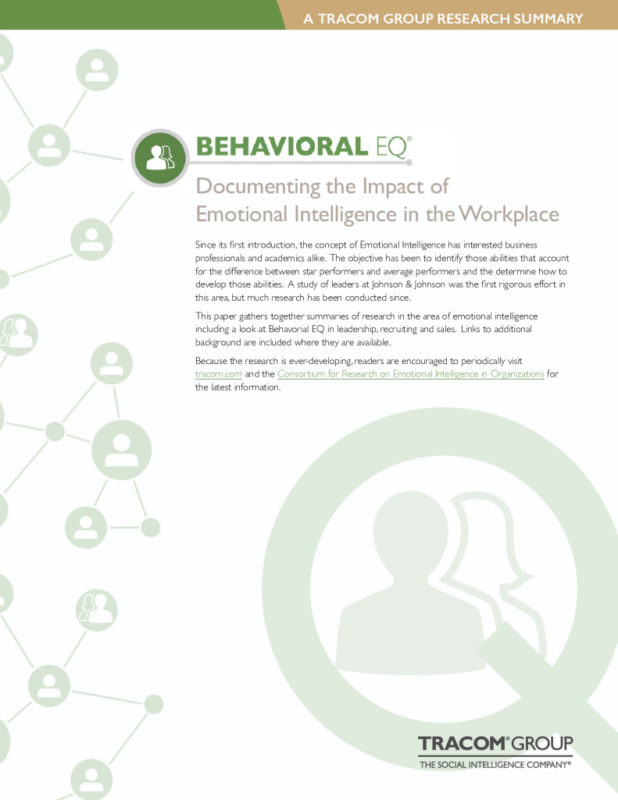The concept of Emotional Intelligence has interested business professionals and academics alike. The objective has been to identify those abilities that account for the difference between star performers and average performers and then determine how to develop those abilities.
A study of leaders at Johnson & Johnson was the first rigorous effort in this area, but much research has been conducted since. This paper gathers together summaries of research in the area of emotional intelligence including a look at Behavioral EQ in leadership, recruiting and sales.
Behavioral EQ’s Importance Over Career Span
In a study done by Fabio Sala (2001), higher-level participants consistently rated themselves higher than others, and that lower-level participants were more likely to see themselves as others see them. The results of this study demonstrate that higher-level employees are more likely to have an inflated view of their emotional intelligence skills and less congruence with the perceptions of others who work with them often and know them well than lower-level employees. Previous research has established that high-performing managers tend to have more accurate self-perceptions. That is, high-performing individuals’ self-perceptions tend to match the perceptions/ratings of others. Therefore, helping managers and executives better understand how they are perceived by others can have significant implications for performance improvement. In another study conducted by Johnson & Johnson, results showed that the highest-performing managers have significantly more “emotional competence” than other managers.
Why Behavioral EQ?
TRACOM offers EQ training specifically on modern workplace challenges and the latest research in brain science. It teaches people how to recognize their emotions and those of others and then gives them tools to turn emotions into productive behavior. Emotional Intelligence also reinforces a positive mindset. Your people, your teams, and your organization will be more connected and more effective with Behavioral EQ training. Here are some more reasons learning Behavioral EQ would be useful to your organization:
- The assessment shows each person’s EQ strengths and weaknesses.
- Behavioral EQ concepts are simple to learn, but not simplistic in outcomes.
- Behavioral EQ strategies are practical with both near-term and long-term benefits.
- Behavioral EQ is used globally with full international language and cultural support.

 New Horizons
New Horizons
 Project Management Academy
Project Management Academy
 Six Sigma Online
Six Sigma Online
 TCM Security
TCM Security
 TRACOM
TRACOM
 Velopi
Velopi
 Watermark Learning
Watermark Learning
 Login
Login

